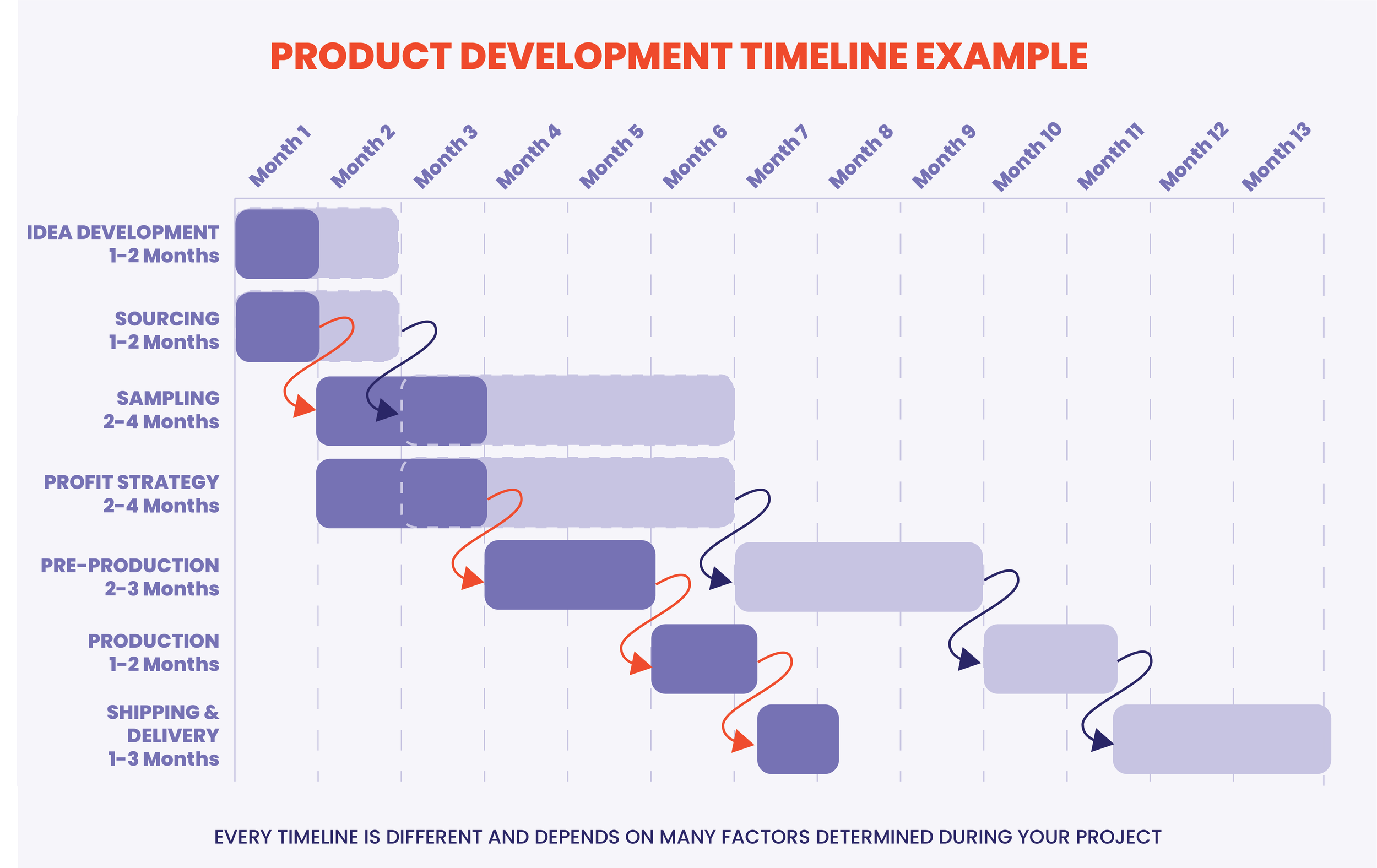How Long Does Product Development Really Take for Apparel Brands?
One of the most common questions we receive at AJG Fashion Consulting is, "How long does apparel product development take?" The reality is that timelines can vary significantly based on numerous factors such as garment complexity, fabric availability, sampling rounds, and factory lead times. Understanding these timelines is critical for fashion brands aiming to launch products efficiently and sustainably.
Defining the Apparel Product Development Timeline
Generally, the apparel product development process ranges from 6 to 9 months. Every brand’s timeline can vary greatly, so working with a trusted an experienced team can help manage expectations and mitigate common delays. The timeline typically breaks down into several key phases:
Concept and Design Phase (2-4 weeks): Initial sketches, mood boards, and concept refinement.
Technical Design and Tech Packs (1-3 weeks): Creating detailed tech packs, specifying fabric, trims, measurements, and construction details.
Material Sourcing and Development (3-6 weeks): Selecting fabrics, trims, and securing availability.
Prototype Sampling (3-6 weeks): First samples produced, assessed for fit, quality, and design accuracy.
Fit and Revision Rounds (4-8 weeks): Multiple fitting sessions and revisions based on prototypes to achieve ideal fit and functionality.
Material Production (3-4 Weeks): Depending on whether you chose available materials that are ready to be purchased, or custom materials that need to be milled.
Pre-Production Sample Approval (2-4 weeks): Final sample approval ensuring production readiness.
Production (4-8 Weeks): Factory production timelines vary significantly based on factory availability, complexity and quantity, as well as seasonally.
Shipping (2 weeks-8 Weeks): Shipping timelines depend on method (Air vs. Sea), country of origin, port congestion, ground transport, and warehouse availability.
Factors Affecting Development Timelines
Several variables can influence the product development timeline:
Fabric Complexity and Customization: Custom fabrics or specialty materials often require additional time due to longer sourcing and production lead times. High-quality or unique textiles might need special treatment, dyeing processes, or additional testing for performance, all of which contribute to extended timelines.
Number of Revisions Needed: The complexity of the design and the brand’s standards for fit and quality directly impact the number of sample iterations required. Designs with intricate detailing, multiple construction components, or demanding fit requirements typically go through several rounds of revisions, thereby lengthening the overall development timeline.
Factory Capabilities and Availability: The capacity and expertise of the production facility can either streamline or extend the development process. Choosing factories with the right machinery, skilled workforce, and availability for timely production is critical to minimizing delays and meeting your development schedule.
Communication and Collaboration Efficiency: Smooth, timely communication between your team, designers, and manufacturers can significantly impact the development process. Miscommunication or delayed responses can add unnecessary time to each phase.
How to Streamline Your Apparel Development Timeline
To achieve efficiency in product development, consider these strategic tips:
Clear, Detailed Tech Packs: Investing time upfront in comprehensive tech packs can drastically reduce misunderstandings and revision rounds. A thorough tech pack provides explicit instructions and specifications, reducing the likelihood of misinterpretations during the sampling and production stages. Learn more about creating effective tech packs here.
Strategic Material Choices: Selecting readily available or stock fabrics can significantly shorten sourcing timelines. Opting for standardized materials that suppliers frequently stock or produce can minimize delays associated with fabric procurement and customization. Explore our guide on mastering materials development.
Reliable Production Partnerships: Choosing production partners with proven experience in your product category helps mitigate potential delays and errors. Established factories with demonstrated expertise and reliable reputations can offer efficient production cycles, proactively manage unexpected challenges, and maintain high-quality standards throughout the process. Discover tips for selecting production partners.
Effective Project Management Tools: Leveraging project management software and collaboration platforms can streamline communications, track progress transparently, and facilitate real-time updates, ensuring that all stakeholders stay aligned and responsive. Read about optimizing your fashion supply chain workflow.
Realistic Timeline Expectations
While ambitious timelines might seem attractive, realistic expectations support sustainable growth. Allocating adequate time for each stage ensures higher quality outcomes, less stress, and fewer unexpected delays. Building a strong foundation for growth takes time, but ensures your brand is set up for success long term.
Plan Effectively for Your Apparel Launch
Understanding the true timeline of apparel product development empowers brands to plan effectively, manage resources efficiently, and ensure a successful product launch. Partnering with experts like AJG Fashion Consulting can further streamline the process, provide guidance, and help brands navigate potential challenges with confidence.
For more insights on avoiding common production pitfalls, explore our guide on What Causes Delays in Apparel Production – and How to Avoid Them.
Ready to refine your product development timeline? Contact AJG Fashion Consulting today to discuss your project.



